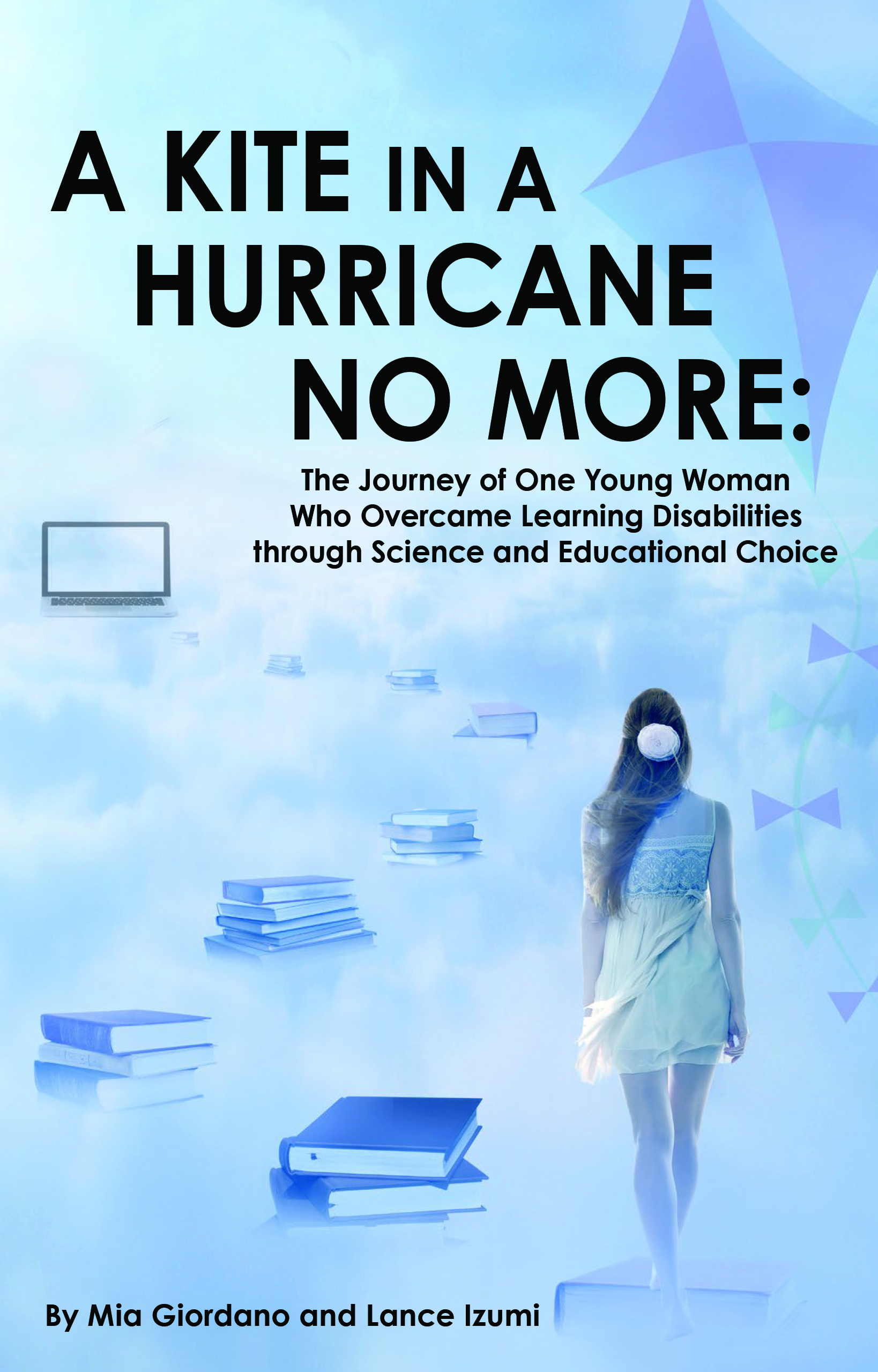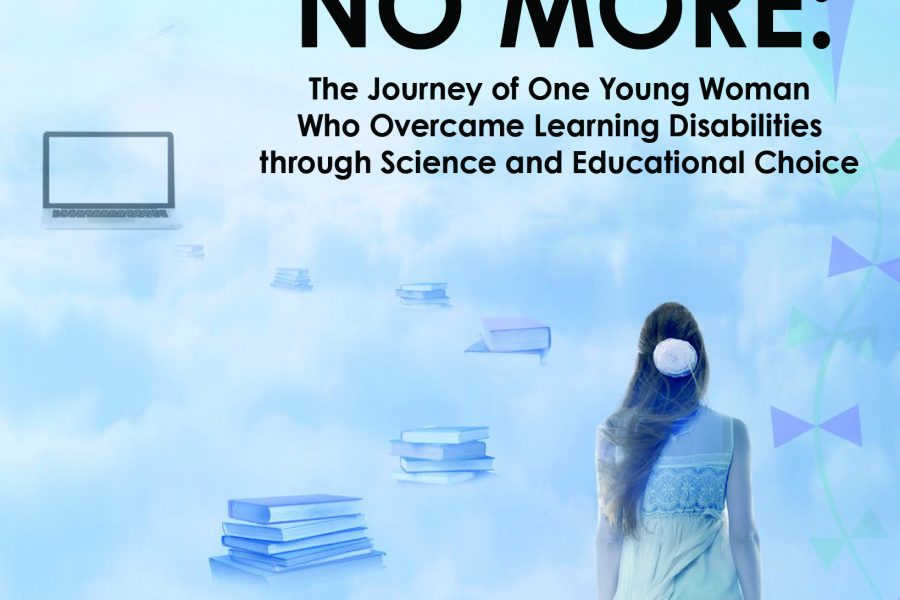With the education world in flux because of the COVID pandemic, it is time to push for the broadest range of education options possible for all children, including those with special needs.
My new book A Kite in a Hurricane No More, which I co-authored with Mia Giordano, tells the autobiographical story of Mia’s battle with severe learning disabilities; discusses how educational choice changed her life; and recommends policy reforms to address the needs of young people like Mia.
how educational choice changed her life; and recommends policy reforms to address the needs of young people like Mia.
As a very young girl, Mia, who grew up in the Bay Area, had a health issue that damaged her brain, causing serious learning disabilities, including having great difficulty speaking, reading, and writing.
According to Mia: “There seemed to be a disconnect between what I was seeing in my brain and the communication to my hand to write it down.”
Further, “Not only was there this disconnect between my brain and my hand, I could not stay within the lines of the writing paper.” Over time, she said, “my writing got to be more like abstract art.”
The conventional public and private schools in which she enrolled were unable to address her learning issues, so Mia’s mom decided to homeschool her.
Luckily, Mia’s mom had discovered the brain-based Arrowsmith program, which was offered by a small private learning center nearby. The program uses a variety of repetitive exercises to strengthen weak parts of the brain.
Mia was evaluated by Arrowsmith staff and was found to have severe problems in cognitive functions such as motor symbol sequencing, which prevents writing out the alphabet, and symbol relations, which makes it hard to read the hands of a clock.
To strengthen the weak areas of her brain, Mia would do repetitive exercises such as reading clock faces with up to ten hands, with each hand signifying increments of time from seconds to centuries.
“Deciphering the clock with speed and accuracy,” said Mia, “helped my reasoning abilities, my reading comprehension, and my math problem solving.”
Mia’s Arrowsmith teacher, Kelly Ferreira, said that initially Mia’s “ability to read and comprehend was grossly delayed.” But after going through the Arrowsmith program, Mia had a breakthrough moment.
“I recall,” said Ferreira, “one day Mia writing something and she brought it to me, and I asked, ‘Man, who wrote this?’ And she had tears in her eyes, and I said, ‘You wrote this, and I can read it.’”
Mia stayed in the Arrowsmith Program for four years, with the exercises changing and strengthening her brain, and her transformation was amazing. She went from having difficulty reading sentences to reading more than fifty books in the summer before she completed the program.
Southern Illinois University Professor Greg Rose, one of the nation’s top neuroscientists, has studied the Arrowsmith program and says, “it is possible that just looking at a clock face all day is helping your ability to count backwards by seven or helping you write sentences better.”
Yet, despite research by Professor Rose and others showing the effectiveness of the Arrowsmith method, the program is largely unavailable in the United States because the paradigm used in regular public schools focuses on compensating strategies, which emphasize functions where a child is strong and de-emphasize those that are weak, rather than trying to strengthen weak areas of the brain.
According to longtime Bay Area school education psychologist Claire Goss, implementing a successful alternative model like Arrowsmith to address student learning disabilities in the public schools would be impossible because teacher training and funding are geared to the compensatory-strategies model.
Florida’s Gardiner Scholarship Program, which creates state-funded education savings accounts for parents to use to pay for educational services for their special-needs children, offers hope.
In response to the Gardiner scholarships, there are private schools across Florida that offer the Arrowsmith program. In California, which has no similar scholarship program, no school offers Arrowsmith, and even the learning center Mia attended is now closed.
If we are to ensure equity for all children with learning disabilities, regardless of the income of their families, we need to enact Gardiner-like programs in all states. As Mia notes, “Only when all families have the same ability to make choices will all children have the chance to succeed that I had.”
Lance Izumi is senior director of the Center for Education at the Pacific Research Institute. He is the co-author, with Mia Giordano, of the 2020 book “A Kite in a Hurricane No More: The Journey of One Young Woman Who Overcame Learning Disabilities through Science and Educational Choice.”


